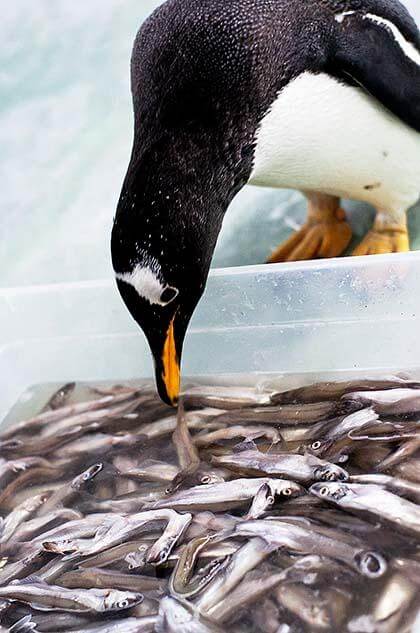By Rich Bockmann
Being versatile is part of a veterinarian’s job description. Whether it be a lizard, a chicken, a pig or a frog, a vet is expected to be able to diagnose whatever comes in the door.
So when Bayside veterinarian Dr. John Charos got a call to look over the penguins in the new Jim Carey movie “Mr. Popper’s Penguins,” it didn’t phase him one bit.
“One of my first emergencies was a camel with the traveling circus,” said Charos, who practices at the Central Veterinary Associates Clinic at 36-43 Bell Blvd. “I’ve worked with sloths. These were the first penguins.”
The creatures in question are a flock of eight penguins from the Montreal Zoo. The avian actors had been sent to Steiner Studios in Brooklyn to play their roles in helping Carey’s character, a monomaniacal businessman, understand what he’s been missing in life when he inherits six penguins. The movie opened in theaters Saturday.
Between October and March, Charos maintained the health of the animals, prevented diseases and tested blood for West Nile Virus and Avian Influenza. While at the studio, the penguins had their own refrigerated environment designed and built to maintain their health and well-being, including a custom-built, cold-water Jacuzzi.
The penguins, though, were destined for a new stage once their stint in Hollywood came to an end. After filming, they were sent to a facility in Hong Kong to await the completion of a zoo in China, where they would propagate a new flock. Because the penguins lived in a freshwater environment, they had to be prepared to live a life in salt water. Penguins have vestigial supraorbital glands, which allow them to live in and drink salt water and remove the salt from the water.
“These unique glands allow the penguins to live without a freshwater source,” Charos said. “Since they were born in a zoo and their 12 generations before them lived in a freshwater environment, these glands begin to atrophy, like a muscle would from disuse. The weaning helped the vestigial supraorbital glands develop into fully functional glands again.”
Charos said it was a good experience working with the animals.
“They’re a big attraction because of the way they walk,” he said. “They’re comical, and very graceful jumping in and out of the water. They work as a flock, and everyone’s always looking at the boss for directions.”
“It was a tremendous experience taking care of these wonderful, exotic animals,” he said. “Taking care of the penguins during the making of the film was very challenging. But it was also rewarding to provide these animals with the best care possible in the short amount of time we were with them.”
Reach reporter Rich Bockmann by e-mail at rbockmann@cnglocal.com or by phone at 718-260-4574.

































